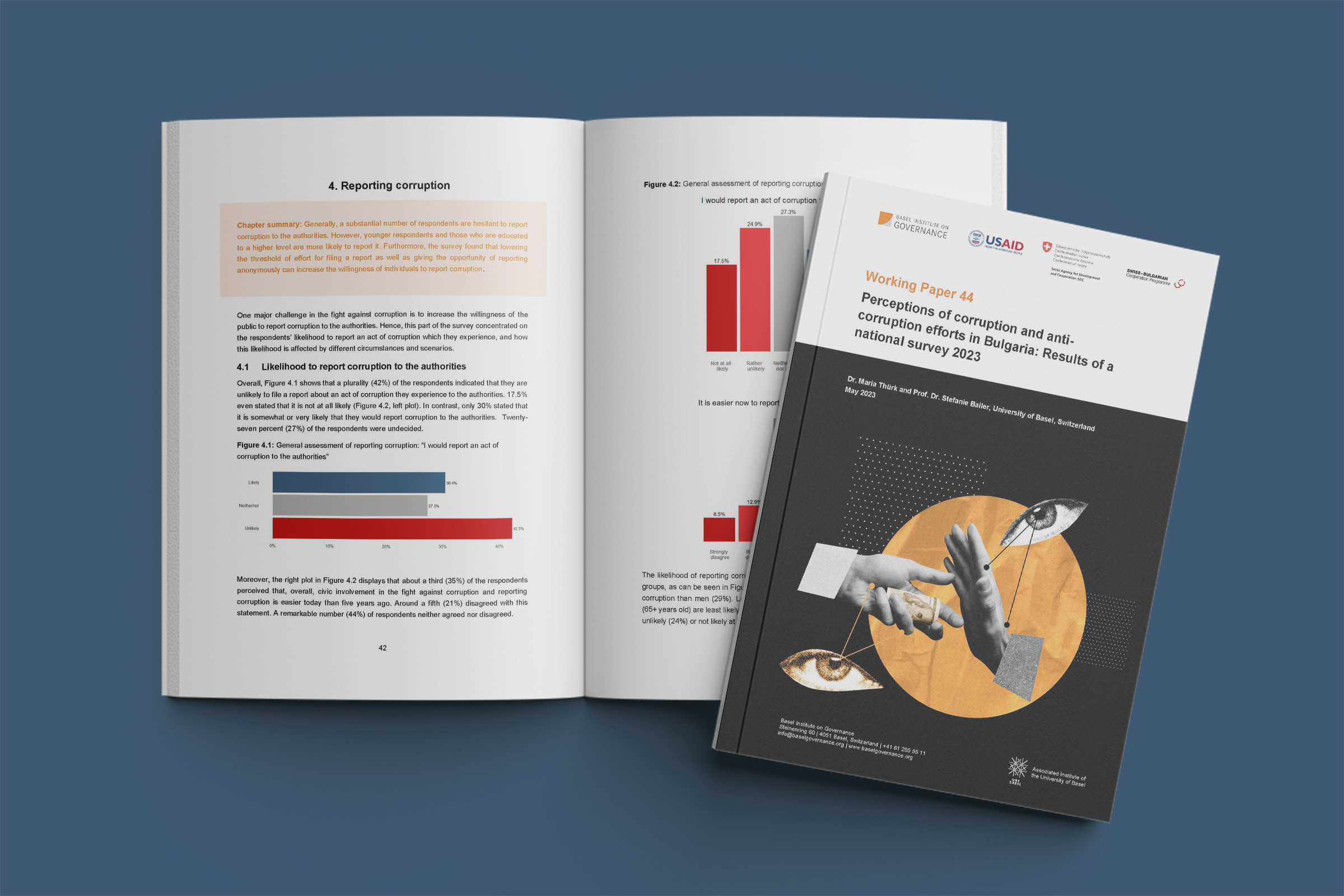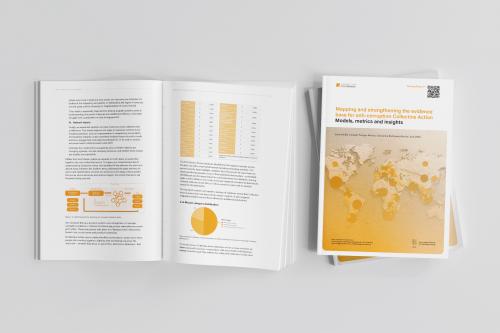How do Bulgarians perceive of corruption and anti-corruption efforts? Results of a new study

Bulgaria has been undergoing a period of political instability, with five electoral cycles in the last two years. During this period, corruption has become a highly politicised topic. Efforts to curb it are now one of the most important campaign issues.
In addition, Bulgaria has the second highest levels of perceived corruption among EU member states according to Transparency International's 2022 Corruption Perceptions Index.
But what do different groups of people within Bulgaria really know and think about corruption and, more importantly, government efforts to address corruption in the country? Are they willing to report corrupt acts? If not, what would make them more likely to do so?
Understanding these questions is vital to the successful development and implementation of anti-corruption laws and measures, such as the new Whistleblower Protection Act.
Digging deeper
In order to gain a deeper understanding of perceptions of corruption in the Bulgarian public, we conducted a nationwide survey from February to March 2023.
Led by Dr Maria Thürk and Professor Stefanie Bailer of the University of Basel, the survey asked 1,209 respondents about their knowledge, perceptions and attitudes towards corruption and anti-corruption efforts in Bulgaria.
Respondents were selected based on the quota sampling criteria of age, gender, education and place of residence, in order to ensure a sample which accurately represents the Bulgarian population.
Perceptions of corruption...
The survey results demonstrate a widespread perception of corruption in Bulgarian society and a strong desire to combat it. In brief:
- Our survey revealed that – no surprise! – corruption is considered to be a pressing problem in the country. Respondents named it second most frequently as the most important problem in Bulgarian society, following inflation.
- People of all different genders, ages, educational backgrounds and places of residence perceive corruption as being widespread in Bulgaria.
- Respondents are strongly against acts of corruption, especially grand corruption, and consider them unacceptable.
- The sector which is perceived as most affected by corruption is the judicial system. However, many other sectors are perceived as being highly affected by corruption.
...and of anti-corruption efforts
We also uncovered deep scepticism about the effectiveness of government efforts to combat corruption:
- Respondents are considerably critical of political elites' efforts to fight corruption, with significant variation based on political party affiliation.
- Paradoxically, although the Bulgarian Public Prosecutor is the most frequently selected institution to lead the fight against corruption, respondents stated they have very little trust in the Public Prosecutor or, as mentioned above, the judicial system as a whole.
- Only about one-third of respondents are likely to report incidents of corruption, with a higher likelihood among younger and higher educated individuals.
- The lower the effort required to report acts of corruption – and the lower the risks involved – the more likely respondents say they are to report corruption.
We hope the survey serves its purpose as an important source of information for policymaking and governmental communication efforts in the fight against corruption in Bulgaria, as well as our team's support to Bulgarian partners under an MoU signed in May 2022.
More
- View and download the survey report in English and Bulgarian: Working Paper 44 – Perceptions of corruption and anti-corruption efforts in Bulgaria
- The survey was conducted by with operational support from Global Metrics in Bulgaria. The research was made possible by the support of the Swiss Agency for Development and Cooperation (SDC) under the Swiss-Bulgarian Cooperation Programme and of the American people through the United States Agency for International Development (USAID).



